12
Benjamin Becker’s Back On Track After Losing 11 in a row
10 Comments · Posted by Scoop Malinowski in Articles, Scoop
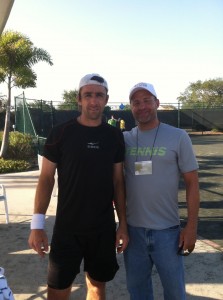
It’s been a rough year for German vet Benjamin Becker, who started 2013 ranked #65.
He made R32 in Auckland then R64 at the Australian Open, losing in straights to Delpo. He made quarters at the Heilbronn Challenger, then lost first round in Zagreb, then he fell to Istomin in the R16 in San Jose after beating Harrison.
Ten tough losses in a row followed. First round in Memphis to F-Lo 4-6 in the third.
First round in Delray Beach to Istomin 5-7 in the third.
First round in Indian Wells Masters to Bob Reynolds 4-6 in the third.
First round at Dallas Challenger to Robby Ginepri 4-6 4-6.
First round in Miami Masters to Aljaz Bedene 3-6 2-6.
Then another first round loss to Reynolds at Guadalajara Challenger 3-6 2-6.
First round loss to eventual champ Alex Kuznetsov 2-6 2-6 at Sarasota Challenger.
First round loss to Malek Jaziri at Tunisia Challenger 1-6 4-6.
First round at Dusseldorf to Tobias Kamke 3-6 2-6.
First round loss to Jeremy Chardy at French Open, 4-6 2-6 5-7.
Finally, out of nowhere, Becker got back on the winning track at the Nottingham Challenger, beating Mattias Bachinger 6-3 in the third. Then he beat Steve Johnson 6-2 in the third, then Adrian Mannarino 6-4, 6-1, then in the semis he beat Kenny DeScheeper 6-2 6-1 before losing the final to Matthew Ebden 5-7 in the third.
Back on track with some tough wins under his belt, Becker headed to Queens Club at defeated Bernard Tomic in the first round 6-4 6-7 7-6. Today in the round of 32 Becker beat Lukas Rosol 7-6 7-5. His next matchc in R16 will be against Alex Dolgopolov.
11 losses in row – ten straight first round exits is near Spadea-like. Heckuva comeback by Becker to right the ship.
Got to talk with Becker in Sarasota before one of his doubles matches and what a super cool and nice guy he is. Some of the things he told me: He lives in Fort Lauderdale near the ocean. He also lives in Munich and prefers life in Germany but he loves the weather of Florida.
He says he tried yoga a few times but hurt himself doing it and thus stopped. He said Agassi used to joke about how inflexible he was, showing how Agassi would try to bend over, but Agassi could only bend over about an inch or two, that’s how stiff his back was.
Becker said after he ended Agassi’s career at the US open, when he came to the locker room after all the hoopla, everyone in the room greeted him with stares and silence. At the time Becker was a new kid on the tour out of Baylor University and most players didn’t know him. He said some players were even crying for Agassi.
At a Davis Cup match in Germany vs. Argentina, he said the Argentine contingent only numbered about 30 people but they were so much louder than the Germans, with their singing and enthusiasm, he was very impressed by the Argentine’s passion and support.
He said German tennis is struggling now to produce young talent, tennis is not as popular now like it used to be there, and the Federation invested a huge amount of money for the roof at the Hamburg stadium.
Just talking with Becker for 15 minutes or so, made me a big fan of him, he’s such a nice decent guy.
Good to see him back winning at the ATP level, his ranking is currently at 105 but it should go up with the success in London this week.
Becker got back on track in Nottingham



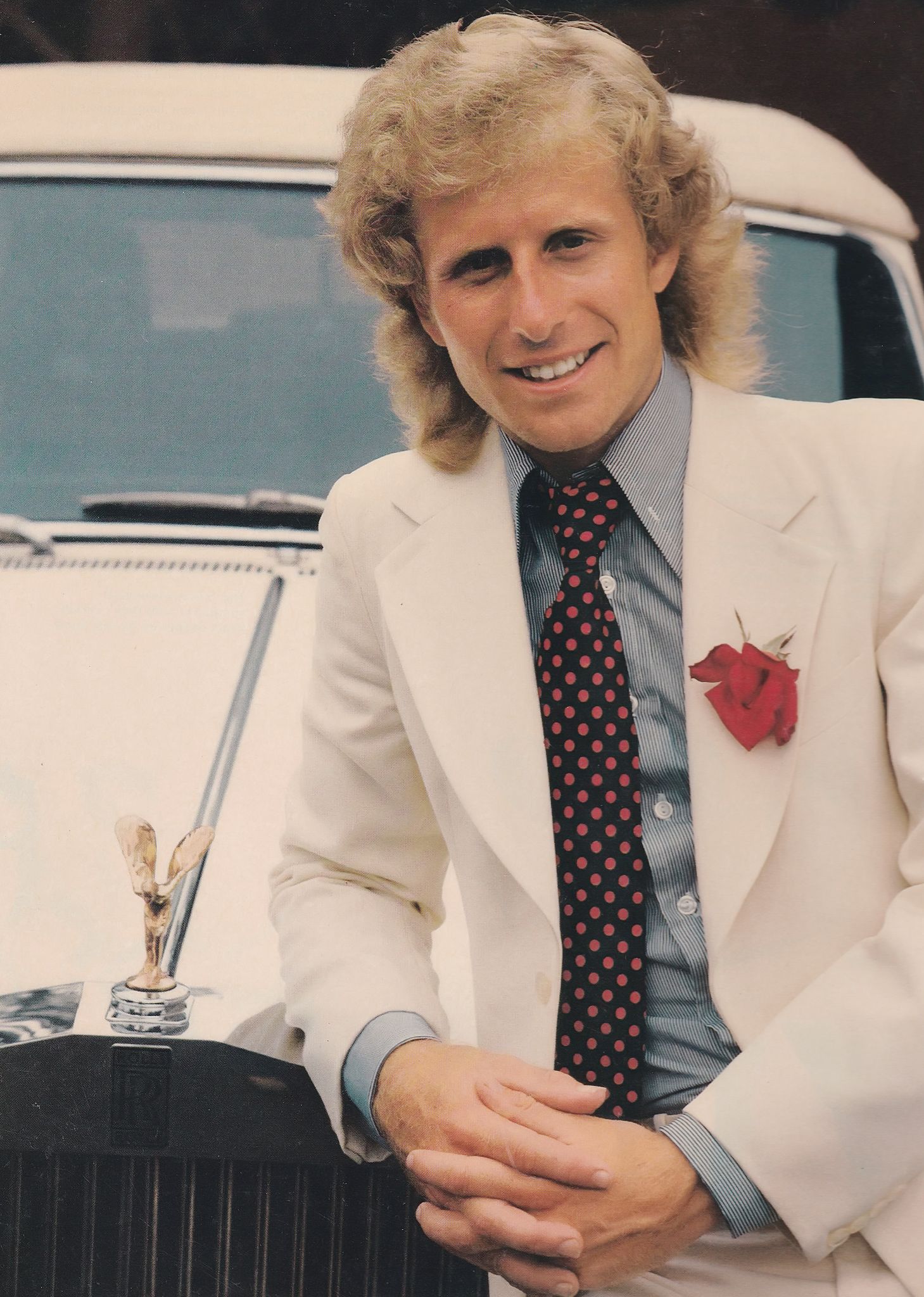

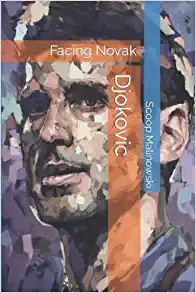
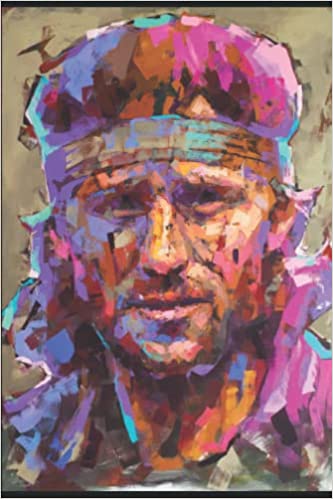
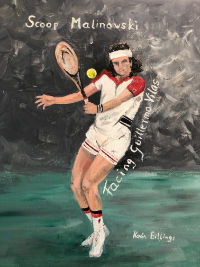
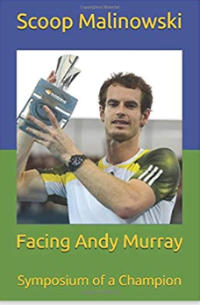
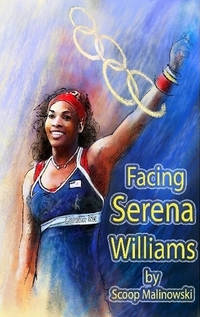
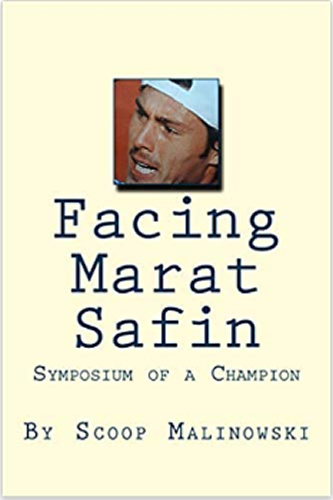
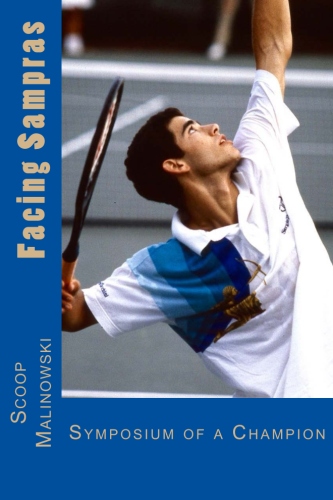
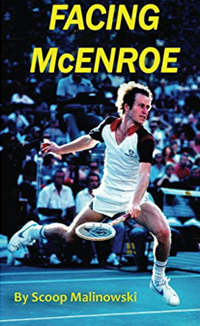
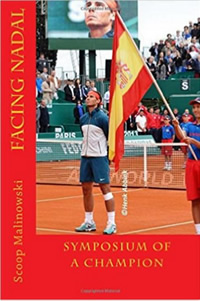

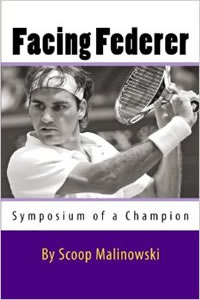
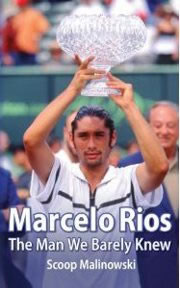

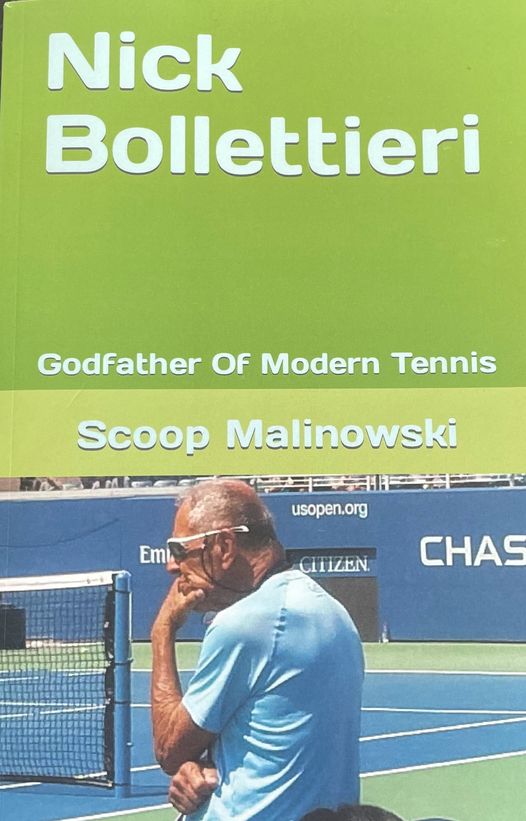

Scoop Malinowski · June 13, 2013 at 1:26 pm
The winning streak continues, Becker takes out Dolgopolov 76 75, onward to the quarters!
Dan Markowitz · June 13, 2013 at 2:39 pm
I like Benjamin Becker, the lesser Becker, too. He’s played well at Newport and he’s one of the few players who also serves and volleys. And he hits with a one-hander. I believe he’s one of the few guys in recent decades who won the NCAA championship, did he play for Baylor? and actually had a good career. Think of all the NCAA champs recently who have fallen through the cracks: Britton, Klahn, Jeff Morrison, and Devvarman. Any more you can think of? Maybe add Steve Johnson.
Scoop Malinowski · June 13, 2013 at 2:55 pm
Becker really came out of nowhere. I actually asked him what was his big breakout which fueled his career and made him believe he belonged in the ATP and he said he had a string of positive results that one year, winning two Challengers and enough matches to get him into the top 100. He said it wasn’t just one big win. Mattias Boeker was another big NCAA name who I think won the title.
Andrew Miller · June 17, 2013 at 9:24 am
Becker seems like fundamentally decent person. I like this story of the confidence building – sounds like Kuznetsov. Interesting he was losing in the 3rd set – now wins the third. Big things hinge on small ones – glad to see Becker’s improvement and confidence moving in tandem.
The end of the Agassi era was confusing in a lot of ways – players involved in his end haven’t been doing incredibly well. Becker, Baghdatis, etc. Personally would like to see Baghdatis re-dedicate and fulfill his ocean of potential, though as always easier said than done. Now that one sees Becker cares a lot, let’s see him go all in too.
Interesting Becker comment on German tennis – true the German men have little to show right now (they are downright Yankee Doodle in their performance post BBecker and Stich). Yet it may have been interesting to know Becker’s take on the German femme fatales – they seem as a group to have resurrected Germany’s presence on the WTA (Steffi who?). Though they are a little stuck (with no signs of repeating their solid run to slam semis) they do somewhat resemble the early rumblings of the Russian Revolution that brought Spartak academy’s protoges to brief dominance (well, at least some dominant moments – Myskina, Dementieva are both Spartak).
Maybe Germany believes more in its fems than Becker and co. And maybe this shows why the U.S. is making (in my mind) a few big mistakes (despite their real improvements in making wild cards more democratic) by not involving people like Lansdorp in shoring up the games of the players who need to make leaps in U.S. tennis. Let’s be frank: improvement is the name of today’s game, and the players behind Isner and Querrey need to improve in huge ways that make their stroke production and strategy better. That requires the feedback of the Spadeas and Lansdorps of the world – one brain for the strategy (Spadea) and one for the technique (Lansdorp), probably another for fitness (like a Gil Reyes, who made Verdasco into a better player who at least showed some signs of doing big things on tour for a year and a half or so).
But let’s keep this about Becker. This is awesome for him and this makes me want to root for him. Thank you to Scoop for bringing this!
Scoop Malinowski · June 17, 2013 at 9:57 am
Baghdatis…what a great player to watch when he was riding high. I really think that Agassi loss at US Open just killed him. He never got over that. It was like young Spadea losing to Chang at US Open in five sets after serving for the match on Armstrong. That was supposed to be Spadea’s breakout moment but he couldn’t finish it. Pancho Segura said in Dan’s book he never recovered from that loss. It’s true. Sometimes certain losses just crush a player, Zvereva vs. Graf, Coria vs. Gaudio, Almagro vs. Ferrer in Australia this year, etc. Baghdatis was for me one of the most most exciting charismatic players I ever saw Andrew, no one could work a crowd into a frenzy like Bag. I wish he could get his confidence back and win a few big matches but I don’t think he has the physicality or strength to do it, tennis is just too tough now. Becker is a great guy Andrew, I really hope and wish the best for him. Probably the nicest friendliest top 40 player I ever met. So down to earth and regular. It was awesome to be around him and hear his words about tennis and about the experiences of playing Federer, he said one time they were supposed to practice and his coach mixed up the times and he ended up being over 30 minutes late to practice with Federer lol, but I’m gonna save that story for the “Facing Federer” book ) . Becker also said Germany had some very very good junior talents since the late 90s but for different reasons it didn’t work out, certain players didn’t work hard enough, etc. Pressure of always being compared to Boris, etc.
Scoop Malinowski · June 17, 2013 at 10:06 am
Agree Andrew, with your idea that it takes different coaches to work on different areas of a junior’s game, instead of the same voices. I talked with a parent of one of the top American junior stars who sent his junior to work with the USTA and he expressed concern that the USTA won’t let him take his son to any outside coaching like Wayne Bryan for doubles tutelage or Robert Landsdorp, etc etc. USTA wants to do it all in house so they get the credit, as opposed to seeking out as many different influences and teachers as possible. Would a junior’s future be brighter with just the USTA working with him (McEnroe, Berger, Higueras, Evert) or would be get more knowledge and learning if he/she was branched out and received consulting from, in addition to the USTA, also maybe special two week training camps with Wayne Bryan, Agassi, Chang, Sampras, Courier, Martin, Landsdorp, Mayotte, Gilbert, Spadea? It’s a hard call, you don’t want too many captains of the ship or to overclog the kid’s head with too many ideas. I like the story by Jack Kramer about being asked to watch and advise WTA #2 at the time Gabriela Sabatini. Kramer pretty much ripped her game and way of playing even though she was #2 in the world at that moment, but it goes to show he saw so much room for improvement in her, even though she was so highly ranked. All players can always improve, even the #1 right now in the ATP and WTA.
Andrew Miller · June 17, 2013 at 10:08 am
Dan is right in a lot of ways about the NCAA crew. Other than Isner’s meteoric rise the NCAA players have topped out around where Vahaly/Devvarman did. I like the current progress of NCAA players (I love some of their shotmaking – I think there’s some serious potential IF honed and if these guys get the fitness component, their strokes are better than the non-college guys with exception of DY) but Dan is right, it’s (almost impossible) to see them transcend the challenger world. More evidence comes when looking at the crop of past junior champs from Canada (maybe juniors is worthless?) or the one year college wonders (Ryan Sweeting, Levine, Britton).
I believe they CAN do better (even get a shot at Davis Cup or do some good, even great slam work), that they have it in them to “be like James Blake” and show college is not the death of tennis players. But the rubber aint meeting the road real well as of today, so some serious work (like train with Rafa or better, be like Rafa) is necessary.
And sorry but stop listening to players about development and sign up with Spadea and Lansdorp and some fitness person who will force them to run or sprint like Mardy Fish, who showed fitness matters. Again, the possibility of this happening is what, 15 percent?
Scoop Malinowski · June 17, 2013 at 10:19 am
Andrew, Steve Johnson just won the Nottingham Challenger 75 75 in final so he’s starting to make a move. I expect him to win a few rounds at Wimbledon. Treat Huey of Virginia is making inroads in doubles, he won a title and also almost won the final with Janowicz vs. the Bryans in the Indian Wells final. Rhyne Williams is kinda stuck right now though. NCAA stars will always rise up into the ATP, just a matter of how many and how far they can go.
Andrew Miller · June 17, 2013 at 10:28 am
Scoop that was a pretty sweet analysis on Bag, Becker and the USTA. Your article convinced me that Becker deserves it. I’d like to see Bag back in the mix (I think with all of his shots in motion he beats Andy Murray and makes slam quarters and semis) but like you are saying, he doesn’t seem to want in on this and it’s always been reported he gets homesick being out of Cyprus and away from his family. I don’t quite understand what led him away from the first coach he had (as well as the world’s hottest girlfriend). But now he’s got huge responsibility as a dad as well as his duties to his wife, Karolina Sprem – so let’s hope all of this allows him to focus on job #2 (the tennis) in order to do job #1 of helping his family. Another big if, and it’s hard to see Bag doing better but not hard to want all the good for him.
Personally I believe USTA should stick with what it’s good at and enhancing it – like the wild card competition (stroke of genius that puts the emphasis squarely on fairness – you think you deserve the wild card? Well show it – and how players like Kuznetsov, out of nowhere, win it. That kind of move keeps players’ faith in the game). But they got to get out of the business of top-down champ development. They got to get back into the business of encouraging competition and exposing players to the competition. Example – I played in Miami (I got my a$$ kicked) against the South American players on the summer junior USTA tourneys, and the Texans, and kids from New Jersey. Literally every tournament I pulled either the #2 seed or a top #20 national player or Texas’ #1 player or Chile’s #5 player – it was brutal. But you got to go up against them and learn how to beat them (I didn’t – I was a great practice player!). So if they make the format better, you’re going to get better players.
I think they got to get back to values and back to infrastructure – making sure parks are in good condition, getting back into leagues, etc, and out of the junior champion producing. Like Wayne Bryan said – get back to what the U.S. is actually good at.
USTA getting credit is such an awful way to proceed. I think the biggest deal for me was Tim Mayotte, who from my understanding has a lot of respect in the coaching world, and what he said about the USTA’s approach and how the big coaches came and did not try to understand Mayotte’s team and how they were trying to teach players new techniques, and instead just imposed their way of how to play etc during a session (essentially undermining the local coaching, a no-no). In my mind you resolve this by leaving coaching to the coaches, getting together an instruction book so that the fundamentals are widely shared and referred to, and getting the tennis infrastructure together. Even invest in some testing to understand what techniques are leading to getting twenty balls on the line, what serving protects players from injuries, stuff like that.
In other words, be helpful and protect the players and build something where everyone wins instead of huge facilities where no one wants to practice. I went for a day to Rick Macci’s academy..they kicked your a$$ there – hardly any technique, just competition and constant hitting. That meant a lot of players would be motivated to practice with each other and then the rest of the program kept them in shape. I don’t think it was that great in my opinion but at least they tried NOT to ruin a player’s game.
Andrew Miller · June 17, 2013 at 10:41 am
Scoop that is true, there’s no good reason for me to put down Steve Johnson (a workaholic – you don’t win two years in a row without losing a match without some seriously exceptional talent) or Rhyne Williams (I don’t know how he does it – but he shows he can beat better players) or even my favorite college player Bradley Klahn, who went down in the 2nd round of qualies at Roland Garros. There’s definitely progress (even amazing progress given these players were less than off the radar screen after graduating last year or so).
But to leap to the next level means leaving the challengers behind. And that’s probably the hardest move in pro tennis (we have tons of examples of U.S. players here, like Ginepri, who moved from prime time back to the challengers and seldom make it back to the big tournaments). We have even more recent examples. But making it for the first time – extremely hard. Staying there – even harder. These breakthroughs should be encouraged by the USTA somehow, but whether that happens – it’s just very hard to see this because of how competitive global tennis is and how there aren’t many incentives for players to work with stroke coaches and get their games more solid.
We have to be blunt that it’s one thing to admire Marcelo Rios and another thing to adopt some of his strategies and implement them – this is hard work (you were able to do them but I imagine it took some hard work). Agassi talks in his book about losing over and over with new techniques and strategies from Gilbert before something clicked. I doubt players want to take these risks and there’s some comfort (as well as necessity) in playing the challengers – you know it’s a dog eat dog world, you know you are playing for peanuts, but there’s some kind of payback – maybe the small tournaments and the camraderie. At the big tournaments it seems like it’s just you and your entourage – that’s an adjustment the USTA can work at, provide some support systems so players know that the USTA is there for them (maybe even better hotels or better food or something).
Anyways that’s enough from me – a fan and non-player. There’s just no guarantee players will pull Serena Williams like plans and decide their game needs re-working and take that risk of a rankings drop when they are working as hard as possible to protect what they already have and live on not much to make it from one tournament to the next. Things from what I get are a bit held together by a thread on the challengers, so thinking big is probably discouraged.